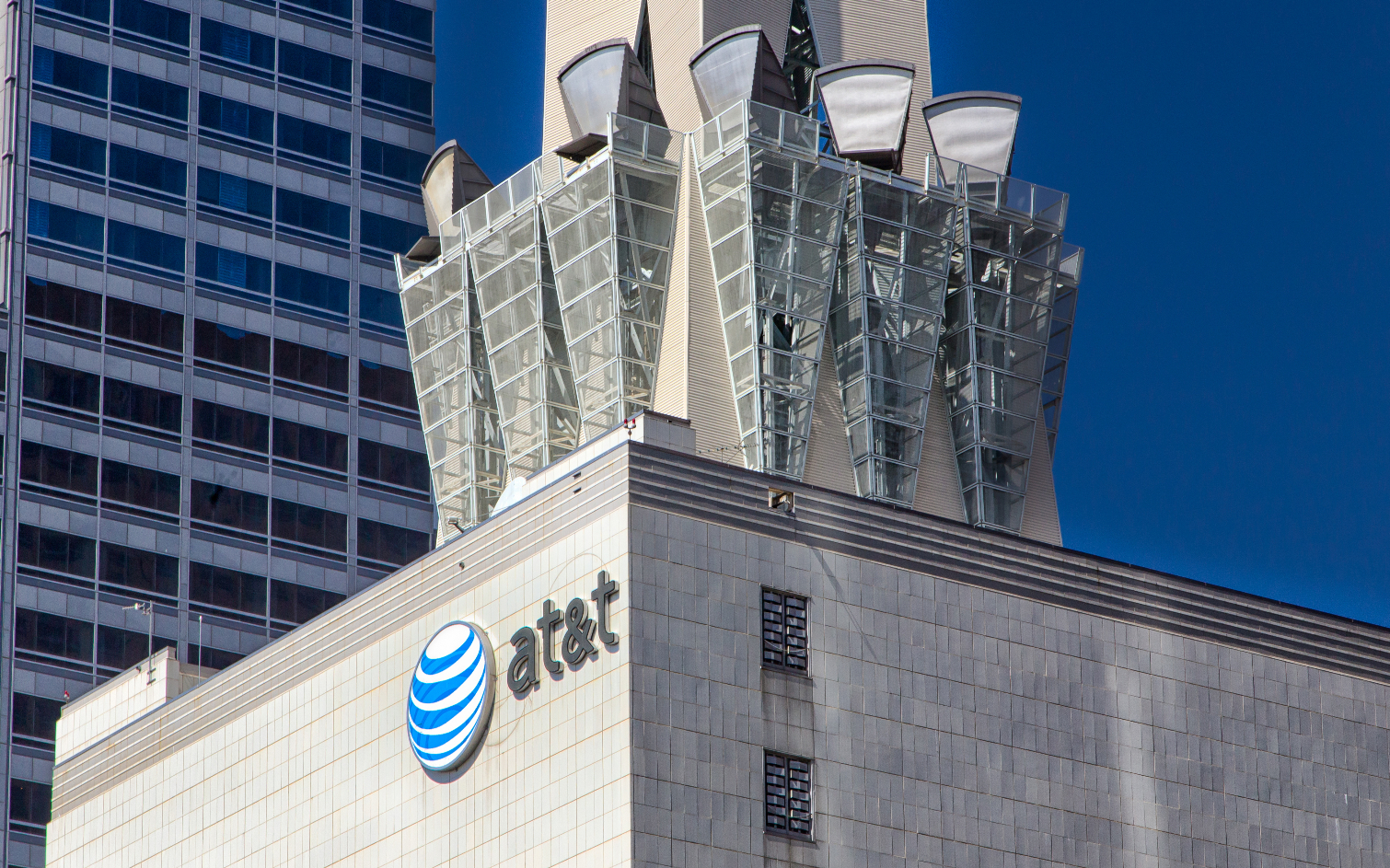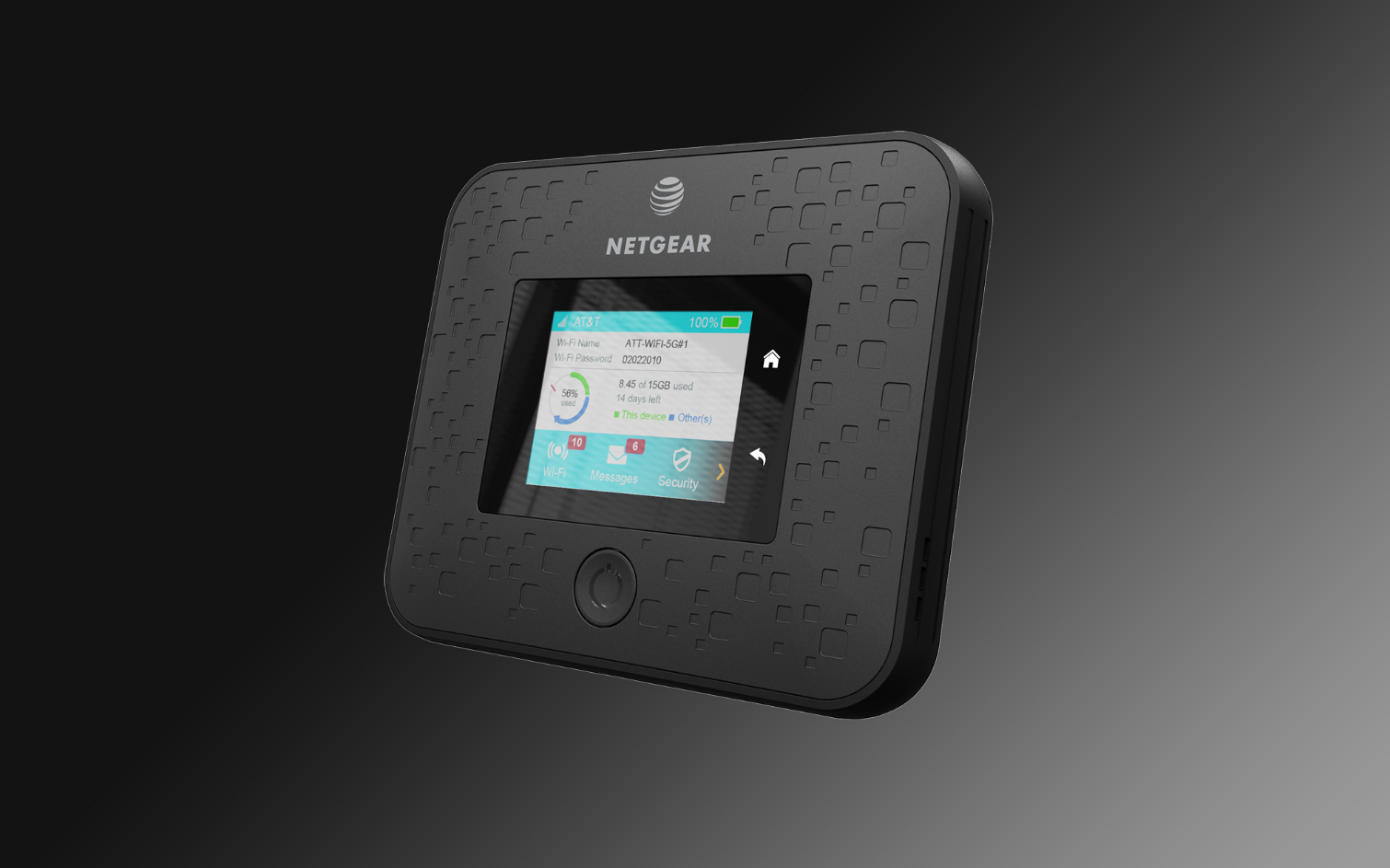AT&T Just Made Mobile 5G a Reality
AT&T has completed the first 5G connection between a consumer-ready device. Here's what it means for you.
Every wireless carrier is in a race to the new 5G networking standard, though they're going about it in different ways. AT&T is banking on 5G hotspots to roll out its next-generation wireless network in 2019, and it just announced a landmark step toward that goal.

This week, AT&T says it completed the first 5G connection between a consumer-ready device — in this case, Netgear's upcoming Nighthawk 5G mobile hotspot — and a live millimeter-wave 5G network. Carriers have run all kinds of 5G trials before, but this one matters to you for one very good reason.
Previous 5G tests have been conducted with non standards-compliant hardware, in highly specialized scenarios. In other words, they either weren't using products you could buy, or they weren't running on infrastructures that existed outside of laboratories and test chambers. The fact that AT&T's successful test in Waco, Texas, this week was conducted using production-ready hardware means that 5G's arrival isn't merely closer than its ever been before; it's practically at our doorstep.
MORE: Don't Expect 5G Phones to Take Off Until 2021
This is welcome news for anyone tired of theoretical techno-babble about what 5G will or could enable in the future. However, AT&T's press release doesn't list the speed of the transmission, nor the particular kind of content loaded — just that it was the test consisted of a "browsing session." Some tangible metrics would have been nice, though AT&T, like every other carrier, is surely still ironing out all those pesky little details.

Additionally, critics will note that AT&T is relying on a hotspot, not a mobile phone. That's a stepping stone to 5G that other carriers, like Verizon and Sprint, want to skip entirely. Verizon is working on a 5G Moto Mod for the Moto Z3 modular smartphone, while Sprint has announced a partnership with LG to deliver an exclusive 5G handset of its own next year. Both of these devices will presumably use the same Qualcomm X50 5G modem that powers the Netgear Nighthawk.
Right now, Verizon in particular seems to be more concerned with residential 5G, after flipping the switch on its 5G Home service for select customers in Houston, Indianapolis, Los Angeles and Sacramento earlier this month. Big Red has stayed mostly quite on its mobile 5G plans, but AT&T conversely says it is still planning to launch its mobile network in 12 cities before the end of the year and bring the list up to 19 by "early 2019."
Sign up to get the BEST of Tom's Guide direct to your inbox.
Get instant access to breaking news, the hottest reviews, great deals and helpful tips.
Adam Ismail is a staff writer at Jalopnik and previously worked on Tom's Guide covering smartphones, car tech and gaming. His love for all things mobile began with the original Motorola Droid; since then he’s owned a variety of Android and iOS-powered handsets, refusing to stay loyal to one platform. His work has also appeared on Digital Trends and GTPlanet. When he’s not fiddling with the latest devices, he’s at an indie pop show, recording a podcast or playing Sega Dreamcast.
-
irunvabrnrhalf 5G means a higher frequency/shorter wavelength.Reply
Pro: each wavelength has greater amplitude ("height"), so each wave can carry more data (and thus, more detail) in each complete cycle.
Con: as a wave gets taller and taller, it has less and less penetration... through trees, fog, buildings, glass, the metal of vehicle bodies, etc.
For those old enough to recall the early cordless phones in our homes, a person could carry their cordless all over the house and even the neighborhood.
As phone technology improved the sound quality by using higher frequencies, the cordless house phone needed to be inside only, and eventually, it often needed to be in the same room or have a clear Line of Sight (LoS) between the handset and the phone base.
That led to systems with multiple extra phone bases, although it was marketed to that public in a far different manner.
For rural folks, already suffering with little to no 4G or 4G LTE cell signal, even when living within 2 miles of multiple cell towers, which often play hot-potato with cell phones as the received signal strengths vary... the Grand 5G Service will be nothing short of a horrendous nightmare.
With even less penetration, rural customers who are looking forward to this monumental advancement, should be papered for disappointment and the sound of crickets rather than the latest YouTube.
If they do have any signal, then the advancement of the software coding, required to process the high speed/high volume of data will make their phones off little use, as varying signal strength will lead to too much lost data at 5G, and quite possibly zero-tolerance for the typical 3G signal that remains most prevalent and reliable in many geographically challenged rural areas.
